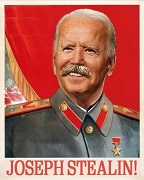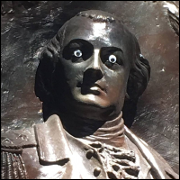|
inthesto posted:There's some kind of bizarre but great irony in how the majority of this thread aligns with what is the more conservative (with respect to its current political environment) party, and I can't help but love it. liberal communist leftism leads to fascism, buy my book
|
|
|
|

|
| # ? May 10, 2024 01:00 |
|
I think it's mostly the running theme that "States have the right to suck it!" -Abraham Lincoln from his deathbed.
|
|
|
|
Big government is good, slavery is bad.
|
|
|
|
Voting straight federalist/whig for those sweet, sweet internal improvements. Let's build some fuckin CANALS
|
|
|
|
I wonder if people will vote for the left-wing Populists when they come up considering that their great champion Thomas E. Watson "is now and will ever be a fearless advocate of the Jeffersonian Theory of Popular Government, and will oppose to the bitter end the Hamiltonian Doctrines of Class Rule, Moneyed Aristocracy, National Banks, High Tariffs, Standing Armies and formidable Navies — all of which go together as a system of oppressing the people."
|
|
|
|
Corek posted:I wonder if people will vote for the left-wing Populists when they come up considering that their great champion Thomas E. Watson "is now and will ever be a fearless advocate of the Jeffersonian Theory of Popular Government, and will oppose to the bitter end the Hamiltonian Doctrines of Class Rule, Moneyed Aristocracy, National Banks, High Tariffs, Standing Armies and formidable Navies — all of which go together as a system of oppressing the people." He had a false consciousness imposed upon him by decades of Jeffersionian lies, it can't be helped.
|
|
|
|
Corek posted:I wonder if people will vote for the left-wing Populists when they come up considering that their great champion Thomas E. Watson "is now and will ever be a fearless advocate of the Jeffersonian Theory of Popular Government, and will oppose to the bitter end the Hamiltonian Doctrines of Class Rule, Moneyed Aristocracy, National Banks, High Tariffs, Standing Armies and formidable Navies — all of which go together as a system of oppressing the people." depends on whether he thinks its totally fine to keep african americans oppressed because they aren't 'the people' e: oh hey look, he was pretending to be racially inclusive while running for office and then turned out to be a gigantic flaming bag of poo poo later on so
|
|
|
|
inthesto posted:There's some kind of bizarre but great irony in how the majority of this thread aligns with what is the more conservative (with respect to its current political environment) party, and I can't help but love it. You best believe I'm going to correct the travesty that was 1824. No House to bail them out this time.
|
|
|
|
UberJew posted:depends on whether he thinks its totally fine to keep african americans oppressed because they aren't 'the people' I'm only interested in the 1896 elections, before the Populists withered. quote:The People's Party advocated the public ownership of the railroads, steamship lines, and telephone and telegraph systems. It also supported the free and unlimited coinage of silver, the abolition of national banks, a system of graduated income tax and the direct election of United States Senators. As a Populist, Watson tried to unite the agrarians across class lines, overcoming racial divides. He also supported the right of black men to vote. It could have been yours. Also the biggest inheritor of the Hamiltonian ideology in the short term will be Henry Clay. But I don't think he's going to win in 1824. https://en.wikipedia.org/wiki/American_School_(economics)#Advocacy Corek has issued a correction as of 01:17 on Jan 5, 2016 |
|
|
|
Corek posted:I'm only interested in the 1896 elections, before the Populists withered. You can read their full platform here. QuoProQuid has issued a correction as of 01:41 on Jan 5, 2016 |
|
|
|
Corek posted:Also the biggest inheritor of the Hamiltonian ideology in the short term will be Henry Clay. But I don't think he's going to win in 1824. Yeah, I'm ready to hitch my horse to the dead cause that is the Whigs once our One True Federalists dream. Aliquid posted:The common man was already thinking about politics, he just couldn't yet vote. Far more accurate, my mistake.
|
|
|
|
I'm so hype for five terms of Eugene Debs followed by the rule of Fightin Bob LaFollette
|
|
|
|
Alfred P. Pseudonym posted:I'm so hype for five terms of Eugene Debs followed by the rule of Fightin Bob LaFollette Same, same I'm excited for 1948. Truman just genocided a bunch of Japanese and Earl Warren could be vice president.
|
|
|
|
Personally, I hope that we will include Philip Roth's alternate history at some point so that I can vote for Lindbergh in '40.
|
|
|
|
King/Ross is the obvious correct choice.
|
|
|
|
Aliquid posted:Same, same Goons will all ironically vote for Strom Thurmond.
|
|
|
|
Alter Ego posted:Goons will all ironically vote for Strom Thurmond. "With the shear weight of the socialist nation we have made, Strom Thurmond is a funny blip, rather than inhuman gently caress-up."
|
|
|
|
karmicknight posted:"With the shear weight of the socialist nation we have made, Strom Thurmond is a funny blip, rather than inhuman gently caress-up." why not both like George Fitzhugh Wikipedia posted:Sociology for the South, or, the Failure of Free Society (1854) was George Fitzhugh's most powerful attack on the philosophical foundations of free society. In it, he took on not only Adam Smith,[11] the foundational thinker of capitalism, but also John Locke,[12] Thomas Jefferson, and the entire liberal tradition. He argued that free labor and free markets enriched the strong while crushing the weak.[13] What society needed, he wrote, was slavery, not just for blacks, but for whites as well. "Slavery," he wrote, "is a form, and the very best form, of socialism."[14] "Socialism," he continued:
|
|
|
|
Thank you all for voting. After participating in the last four elections, Rufus King has finally succeeded in attaining the Presidency. Even as the Federalist Party crumbles, he and his Vice President James Ross have promised to do everything in their power to avoid the excesses that led to war with Britain.   RESULTS BREAKDOWN Most Popular Ticket: Rufus King / James Ross (Federalist) - 28 votes (41.8%) James Monroe / Daniel D. Tompkins (Democratic-Republican) - 27 votes (40.3%) Rufus King / John Marshall (Federalist) - 7 votes (10.4%) Rufus King / Rufus Goodloe Harper (Federalist) - 3 votes (4.5%) Rufus King / John Eager Howard (Federalist) - 2 votes (3.0%) Most Popular Parties: Federalist Party - 40 votes (59.7%) Democratic-Republican Party - 27 votes (40.3%)
|
|
|
|
ELECTION OF 1820 Click here to vote in the Election of 1820! Click here to vote in the Election of 1820!   Background: The Election of 1820 takes place amid the Democratic-Republican Party’s continued consolidation of political legitimacy. After their devastating defeat in 1816, during which King received only a third of the popular vote, the Federalist Party has declined to support any candidate for President. Reflecting their ongoing nationwide collapse, the party instead hopes to cling to retain some relevancy through the Vice Presidency and Monroe’s Cabinet. Though effectively unopposed, serious issues have begun to emerge, challenging the unity of the Democratic-Republican Party. Two years into his Presidency, the United States suffered its largest economic crisis since the 1780s. The Panic of 1819, which stemmed from declining exports and imports and a decline in agricultural prices across the South, caused many of the country’s major banks to declare bankruptcy. Though many officials, including the Federalists running these banks, begged Monroe for financial assistance and protective tariffs, Monroe believed that the Panic was a natural feature of the economy and deferred to the Bank of the United States. Having embraced more conservative policies, the Bank refused to involve itself. The economy recovered before the year’s end, but the Panic has highlighted the need for relief for poorer citizens during economic calamity. The Missouri Compromise has further strained Democratic-Republican unity on regional lines. In 1819, the largely slave-owning settlers in the Missouri Territory applied for statehood. This request set off a massive debate within Congress over the future of slavery, which ended in the House refusing to admit Missouri as a state. Fearing that the issue might escalate to Civil War, but believing any special restrictions on Missouri’s admission to be unconstitutional, Monroe joined forces with his Congressional ally, Henry Clay, to work out a solution.Together, the two formulated a solution whereby Maine and Missouri would both join the Union, maintaining a North-South balance in Congress. Additionally, the Compromise regulated slavery in the country's western territories by prohibiting it in the former Louisiana Territory north of the parallel 36°30′ north. This action seems to have appeased both sides for a time. Southerners know that they will gain states in the future but Northerners know that there is now a strict limitation on slavery’s expansion. The Candidates: DEMOCRATIC-REPUBLICAN PARTY CANDIDATES:  Presidential Nominee: James Monroe
 Vice Presidential Nominee: Daniel D. Tompkins
FEDERALIST PARTY CANDIDATES:  Vice Presidential Nominee: Richard Stockton
 Vice Presidential Nominee: Daniel Rodney
OTHER CANDIDATES:  Presidential Nominee: DeWitt Clinton
QuoProQuid has issued a correction as of 15:09 on Jan 10, 2016 |
|
|
|
DeWitt Clinton needs to get back in the saddle! The Missouri compromise looks like the best thing we abolitionists can hope for, it seems, and as President, Clinton had been able to save the country from the horrible war with England which had been started by the Pinckney administration. So, as far as I am concerned, he is the best of the lot. Regarding the vice president: I don't really care who will serve under Clinton, as long as he is loyal.
|
|
|
|
Wait, so DeWitt Clinton finished a massive government project ahead of schedule and under budget...and also basically single handedly orchestrated the Missouri compromise apparently? What a boss.
|
|
|
|
troubled teen posted:Wait, so DeWitt Clinton finished a massive government project ahead of schedule and under budget...and also basically single handedly orchestrated the Missouri compromise apparently? What a boss. DeWitt ran the Erie Canal project well, but a good portion of its success was the result of factors beyond his control. The Panic of 1819 was a spectacular boon for the canal and Clinton's personal career. quote:The Panic of 1819 did not adversely affect the canal, rather, it had a positive impact on construction. Fearing reduced prices and poor harvests, many farmers went to work on the canal, and the increased competition and labor pool shrunk contract bids and decreased construction costs by 30-40%. By 1821 there were nine thousand men at work on the canal, and with an average expenditure of $26,241 per mile, many more emigrated to the western part of the state seeking canal work or business opportunities, often doubling the population of canal towns. DeWitt Clinton's role in the latter is disputed, but Jefferson and his supporters were convinced that Clinton was the real power behind the lame duck freshman congressman who tried to prevent Missouri's admission. When Tallmadge received a convenient promotion to Lieutenant-Governor of New York a few years later, Jefferson's account was accepted as the gospel truth within the Democratic-Republican Party. For what it's worth, Clinton milked Tallmadge for all he was worth when the Amendment proved popular in the North.
|
|
|
|
Anyway, in the case of his election, would Clinton still be the 5th president, or the 5th and 7th one?
|
|
|
|
Ibogaine posted:Anyway, in the case of his election, would Clinton still be the 5th president, or the 5th and 7th one? Grover Cleveland was considered to be the 22nd and 24th President, so Clinton would be the 5th and 7th if he won. He would also be the first politically unaligned President and the first President since Adams to be re-elected.
|
|
|
|
QuoProQuid posted:DeWitt ran the Erie Canal project well, but a good portion of its success was the result of factors beyond his control. The Panic of 1819 was a spectacular boon for the canal and Clinton's personal career. Just throwing out there, once more, that this thread is fantastic and extremely interesting.
|
|
|
|
troubled teen posted:Just throwing out there, once more, that this thread is fantastic and extremely interesting. I agree. I just finished reading Gore Vidal's "Burr", which I wouldn't have discovered without this thread, and the rest of Vidal's "Empire" novels are on their way here right now. 
|
|
|
|
DeWitt Clinton it is, then.
|
|
|
|
|
Clinton
|
|
|
|
Turns out we like political dynasties. Perhaps we're the real monarchists? But yeah, Clinton seems the best here in this one party state.
|
|
|
|
foobardog posted:Turns out we like political dynasties. Perhaps we're the real monarchists? My secret plan coming to fruition, more like. Octatonic posted:While Adams and Burr are entertaining, sure, what I find even more entertaining is the possibility of establishing an even earlier Clinton dynasty. Is this Clinton related to our soon to be supreme overlord? Well, no, given that Slick Willie's surname comes from his stepdad! However, think of the possibilities. The Roosevelts, Kennedys, and Bushes all establish themselves much later. We can make an American autocracy where power is even more inheritable than it is today!
|
|
|
|
Octatonic posted:My secret plan coming to fruition, more like. In Seattle, we have a popular retiring Representative, Jim McDermott. A Joe McDermott, whose father is Jim McDermott ran for city council and won. His father is a different Jim McDermott. Joe is now running for Rep. Jim's seat. Basically, I'm 90% certain Joe is just coasting on the last name being the same as a popular other candidate. So this works! We also had a John Adams running who claimed to be distantly related to the founder John Adams. Washington state politics is stupid sometimes.
|
|
|
|
None of these people are from Massachusetts what is this BULLSHIT? None of these people are qualified for the Presidency...
|
|
|
|
What I think is unusual is that there is no 100% pro-slavery candidate here, certainly at least not on the level Andrew Jackson would soon be.
|
|
|
|
One more week until we can start not electing Jackson.
|
|
|
|
but where will the nation get its supply of jackson quotes from
|
|
|
|
Just leaving this here because I'll forget to do it by the time 1824 rolls around. https://www.youtube.com/watch?v=0max6HBUmd0
|
|
|
|
i'm not feeling the vp-only strategy, federalism doesn't need to go down like that. i went with clinton
|
|
|
|
Lycus posted:One more week until we can start not electing Jackson. By the eternal!
|
|
|
|

|
| # ? May 10, 2024 01:00 |
|
Corek posted:What I think is unusual is that there is no 100% pro-slavery candidate here, certainly at least not on the level Andrew Jackson would soon be. I can't wait till we get past the civil war I feel too many decisions are based on how the person feels about slaves because...yeah.
|
|
|






























